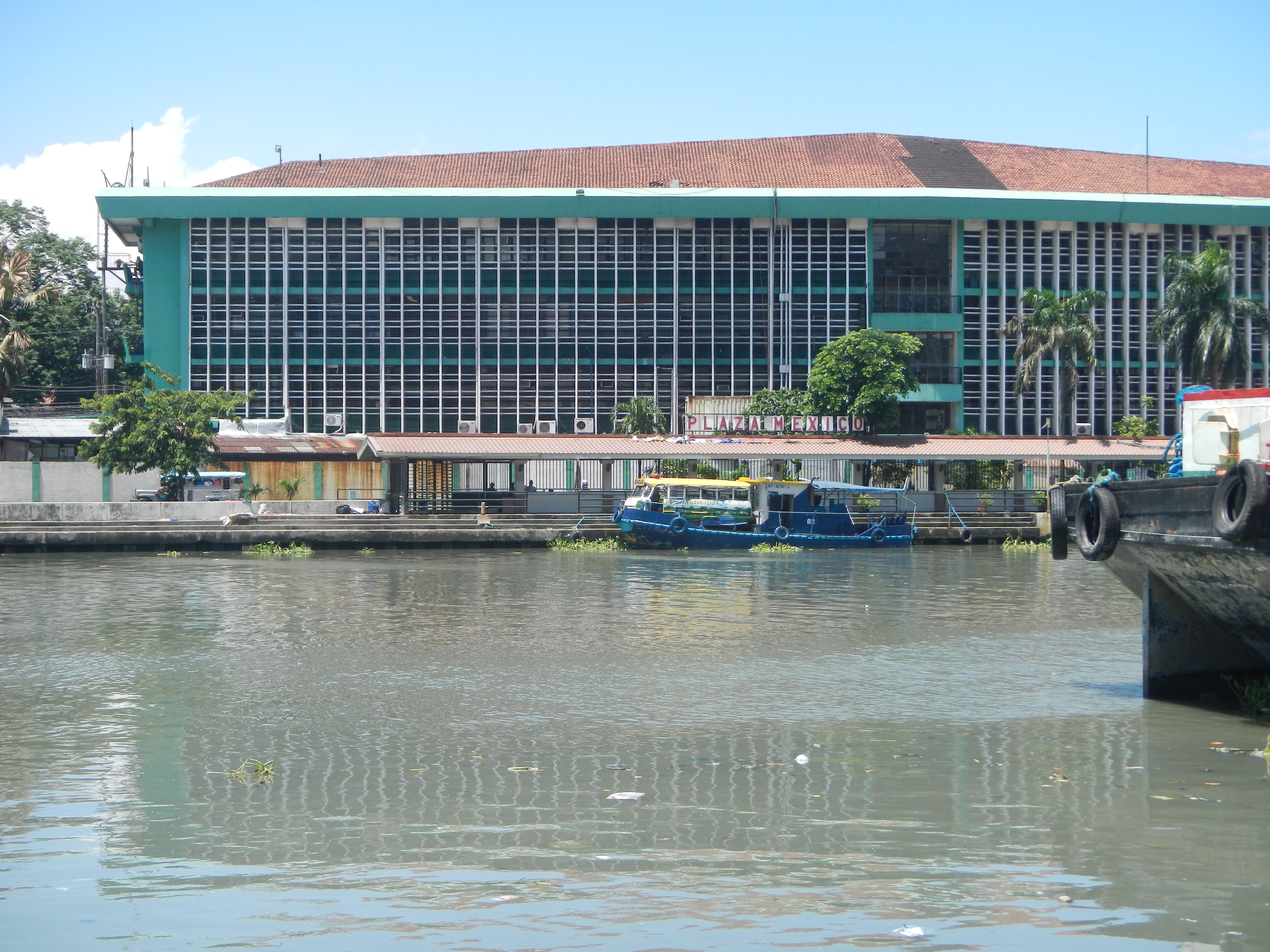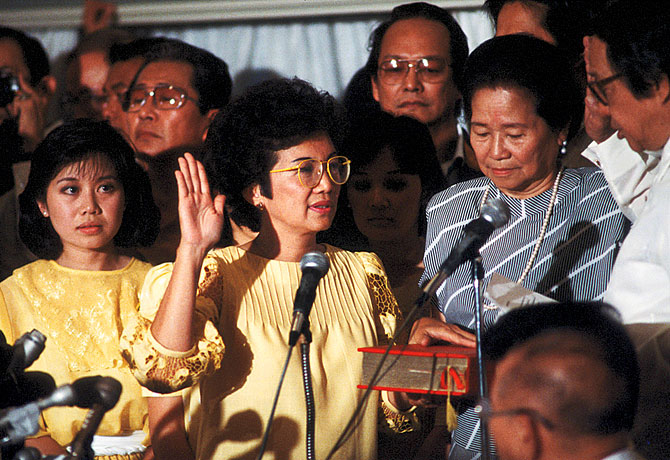|
Bureau Of Immigration (Philippines)
The Bureau of Immigration ( fil, Kawanihan ng Pandarayuhan), also known between 1972 and 1987 as the Bureau of Immigration and Deportation, is the immigration regulatory and control body of the Philippines. It was established by the Philippine Immigration Act in 1940, although a predecessor agency had existed as part of the Bureau of Customs since 1899. History The Bureau of Immigration started as a division of the Bureau of Customs during the American regime in 1899. It was appropriate because ship travel and ship cargo were interlinked and hence, the office was at the Bureau of Customs. It seems that the government then, gave more importance on the entry of goods than monitoring of foreign nationals coming into the country. The government was more interested in generating customs duties from these goods than in the control and regulation of the arrival and stay of foreigners. The functions of immigration remained under the said bureau until 1937 when it was transferred as a ... [...More Info...] [...Related Items...] OR: [Wikipedia] [Google] [Baidu] |
Plaza De Mexico (Manila)
Plaza Mexico is a historic riverside square in Manila, Philippines, located at the west end of Magallanes Drive and Riverside Drive in Intramuros bordering the Pasig River in the north. It is surrounded by the Aduana Building on the south, the Bureau of Immigration Building on the east and the ruins of the ''Bastión de Maestranza'' and ''Puerta de Almacenes'' on the west. The Pasig River Ferry has a station also named ''Plaza Mexico'' located northeast of the square behind the Immigration building. The square was named Plaza Mexico in 1964 to commemorate the 4th centenary of the expedition of Miguel López de Legazpi and Andres de Urdaneta from New Spain (Mexico) and the historic Manila-Acapulco galleon trade relations between the two nations that lasted 250 years. Located on this square is the monument to the ''IV Centenary of the Mexico–Philippines Maritime Expedition'' donated by the Mexican Secretary of The Navy Shipyards during the celebrations of the ''Year of Mexican-Phi ... [...More Info...] [...Related Items...] OR: [Wikipedia] [Google] [Baidu] |
Martial Law
Martial law is the imposition of direct military control of normal civil functions or suspension of civil law by a government, especially in response to an emergency where civil forces are overwhelmed, or in an occupied territory. Use Martial law can be used by governments to enforce their rule over the public, as seen in multiple countries listed below. Such incidents may occur after a coup d'état ( Thailand in 2006 and 2014, and Egypt in 2013); when threatened by popular protest (China, Tiananmen Square protests of 1989); to suppress political opposition ( martial law in Poland in 1981); or to stabilize insurrections or perceived insurrections. Martial law may be declared in cases of major natural disasters; however, most countries use a different legal construct, such as a state of emergency. Martial law has also been imposed during conflicts, and in cases of occupations, where the absence of any other civil government provides for an unstable population. Examples of ... [...More Info...] [...Related Items...] OR: [Wikipedia] [Google] [Baidu] |
Bureau Of Immigration Bicutan Detention Center
The Bureau of Immigration Bicutan Detention Center (BI–Bicutan) is the principal immigration detention center administered by the Bureau of Immigration of the Philippines. Located inside Camp Bagong Diwa, in Lower Bicutan, Taguig, the facility is known internally as the Warden Facility and Protection Unit (WFPU).BI Nabs Korea's Most Wanted Swindler (2018-02-08), Press Release, Bureau of Immigration However, in press releases and public statements, the Bureau variously refers to the facility as being a "", [...More Info...] [...Related Items...] OR: [Wikipedia] [Google] [Baidu] |
Blacklisting
Blacklisting is the action of a group or authority compiling a blacklist (or black list) of people, countries or other entities to be avoided or distrusted as being deemed unacceptable to those making the list. If someone is on a blacklist, they are seen by a government or other organization as being one of a number of people who cannot be trusted or who is considered to have done something wrong. As a verb, blacklist can mean to put an individual or entity on such a list. Origins of the term The English dramatist Philip Massinger used the phrase "black list" in his 1639 tragedy ''The Unnatural Combat''. After the restoration of the English monarchy brought Charles II of England to the throne in 1660, a list of regicides named those to be punished for the execution of his father. The state papers of Charles II say "If any innocent soul be found in this black list, let him not be offended at me, but consider whether some mistaken principle or interest may not have misled ... [...More Info...] [...Related Items...] OR: [Wikipedia] [Google] [Baidu] |
Citizenship
Citizenship is a "relationship between an individual and a state to which the individual owes allegiance and in turn is entitled to its protection". Each state determines the conditions under which it will recognize persons as its citizens, and the conditions under which that status will be withdrawn. Recognition by a state as a citizen generally carries with it recognition of civil, political, and social rights which are not afforded to non-citizens. In general, the basic rights normally regarded as arising from citizenship are the right to a passport, the right to leave and return to the country/ies of citizenship, the right to live in that country, and to work there. Some countries permit their citizens to have multiple citizenships, while others insist on exclusive allegiance. Determining factors A person can be recognized or granted citizenship on a number of bases. Usually, citizenship based on circumstances of birth is automatic, but an application may be required. ... [...More Info...] [...Related Items...] OR: [Wikipedia] [Google] [Baidu] |
Procedural Law
Procedural law, adjective law, in some jurisdictions referred to as remedial law, or rules of court, comprises the rules by which a court hears and determines what happens in civil, lawsuit, criminal or administrative proceedings. The rules are designed to ensure a fair and consistent application of due process (in the U.S.) or fundamental justice (in other common law countries) to all cases that come before a court. Substantive law, which refers to the actual claim and defense whose validity is tested through the procedures of procedural law, is different from procedural law. In the context of procedural law, procedural rights may also refer not exhaustively to rights to information, access to justice, and right to counsel, rights to public participation, right to confront accusers as well as the basic presumption of innocence (meaning the prosecution regularly must meet the burden of proof, though different jurisdictions have various exceptions), with those rig ... [...More Info...] [...Related Items...] OR: [Wikipedia] [Google] [Baidu] |
Filipino Citizenship
Philippine nationality law details the conditions by which a person is a national of the Philippines. The two primary pieces of legislation governing these requirements are the 1987 Constitution of the Philippines and the 1939 Revised Naturalization Law. Any person born to at least one Filipino parent receives Philippine citizenship at birth. Foreign nationals may naturalize as Philippine citizens after meeting a minimum residence requirement (usually 10 years), acquiring real estate, demonstrating proficiency in either English or Spanish as well as a Philippine language, and fulfilling a good character requirement. The Philippines was previously a territory of the United States and local residents were non-citizen U.S. nationals in addition to their status as Philippine citizens. During American rule, any person born in the country automatically received Philippine citizenship by birth regardless of the nationalities of their parents. Since independence, citizenship is gener ... [...More Info...] [...Related Items...] OR: [Wikipedia] [Google] [Baidu] |
Public Morals
Public morality refers to moral and ethical standards enforced in a society, by law or police work or social pressure, and applied to public life, to the content of the media, and to conduct in public places. A famous remark of Mrs Patrick Campbell, that she did not care what people did as long as they "didn't frighten the horses",* shows that in some sense even high tolerance expects a ''public'' limitation on behaviour. At the opposite extreme a theocracy may equate public morality with religious instruction, and give both the equal force of law. Public morality often means regulation of sexual matters, including prostitution and homosexuality, but also matters of dress and nudity, pornography, acceptability in social terms of cohabitation before marriage, and the protection of children. It is a main justification for censorship; it can lead to campaigns against profanity, and so be at odds with freedom of speech. Gambling is generally controlled: casinos have been consi ... [...More Info...] [...Related Items...] OR: [Wikipedia] [Google] [Baidu] |
National Security
National security, or national defence, is the security and Defence (military), defence of a sovereign state, including its Citizenship, citizens, economy, and institutions, which is regarded as a duty of government. Originally conceived as protection against Offensive (military), military attack, national security is widely understood to include also non-military dimensions, including the security from terrorism, minimization of crime, economic security, energy security, environmental security, food security, and Computer security, cyber-security. Similarly, national security risks include, in addition to the actions of other nation states, action by violent non-state actors, by narcotic cartels, and by multinational corporations, and also the effects of natural disasters. Governments rely on a range of measures, including Political power, political, Economic power, economic, and military power, as well as diplomacy, to safeguard the security of a nation state. They may also ... [...More Info...] [...Related Items...] OR: [Wikipedia] [Google] [Baidu] |
President Of The Philippines
The president of the Philippines ( fil, Pangulo ng Pilipinas, sometimes referred to as ''Presidente ng Pilipinas'') is the head of state, head of government and chief executive of the Philippines. The president leads the executive branch of the Philippine government and is the commander-in-chief of the Armed Forces of the Philippines. The president is directly elected by the people, and is one of only two nationally elected executive officials, the other being the vice president of the Philippines. However, four vice presidents have assumed the presidency without having been elected to the office, by virtue of a president's intra-term death or resignation. Filipinos generally refer to their president as ''pangulo'' or ''presidente'' in their local language. The president is limited to a single six-year term. No one who has served more than four years of a presidential term is allowed to run or serve again. The current president of the Philippines is Bongbong Marcos, wh ... [...More Info...] [...Related Items...] OR: [Wikipedia] [Google] [Baidu] |
Corazon Aquino
Maria Corazon "Cory" Sumulong Cojuangco-Aquino (; ; January 25, 1933 – August 1, 2009) was a Filipina politician who served as the 11th president of the Philippines from 1986 to 1992. She was the most prominent figure of the 1986 People Power Revolution, which ended the two-decade rule of President Ferdinand Marcos and led to the establishment of the current democratic Fifth Philippine Republic. Corazon Aquino was married to Senator Benigno Aquino Jr., who was one of the most prominent critics of President Marcos. After the assassination of her husband on August 21, 1983, she emerged as leader of the opposition against the president. In late 1985, Marcos called for a snap election, and Aquino ran for president with former Senator Salvador Laurel as her running mate for vice president. After the election held on February 7, 1986, the Batasang Pambansa proclaimed Marcos and his running mate Arturo Tolentino as the winners, which prompted allegations of electoral f ... [...More Info...] [...Related Items...] OR: [Wikipedia] [Google] [Baidu] |



.jpg)


